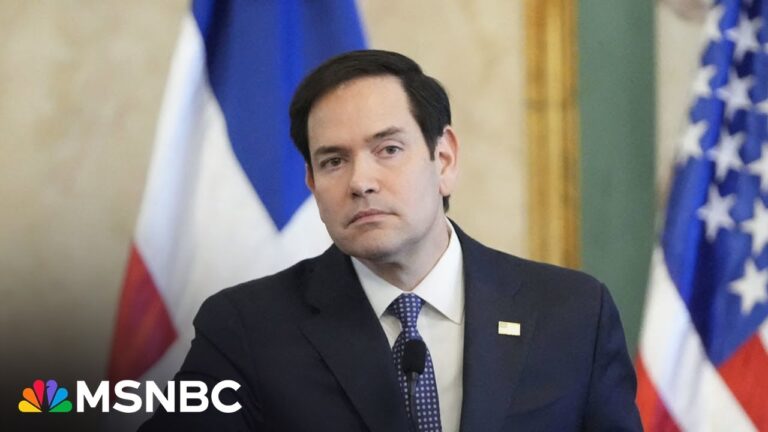Video at the bottom!
In a recent segment, esteemed reporters convened to discuss a troubling turn of events in U.S. foreign policy regarding Ukraine. The conversation saw the participation of John Bolton, former National Security Adviser, who shared insights about the implications of recent public statements made by U.S. officials concerning President Zelensky of Ukraine.
Beginning with comments from Republican leaders, including Marco Rubio, the discussion centered on Russia’s aggressive actions under Vladimir Putin. Rubio described Putin as “basically an organized crime figure” and underscored the irrationality of the invasion of Ukraine. He and others articulated the significance of Ukraine’s sovereignty and the dangers of appeasing authoritarian regimes. Bolton echoed these sentiments, criticizing the public disparagement of Zelensky by prominent Republicans, calling it “one of the most disgraceful performances” he had ever seen. He emphasized that aligning with aggressors undermines the integrity of U.S. foreign policy.
The dialogue shifted to an earlier supportive statement from Lindsey Graham, who hailed Zelensky as a cherished ally, juxtaposed against his more recent, critical remarks. Bolton expressed dismay at the inconsistency of values reflected in the actions of U.S. lawmakers, warning that they risk damaging their reputations by siding with adversaries of democracy.
Former CIA Director John Brennan joined the conversation, analyzing the implications of U.S. leadership’s transactional approach to international relations. He highlighted the potential danger this poses to global alliances and U.S. security interests, reiterating Bolton’s concerns about the ignorance exhibited by certain officials regarding historical contexts and the nature of diplomacy.
The discussion culminated in reflections on the broader implications of the current administration’s stance. Alex, another panel member, articulated concerns about the U.S. marginalizing itself by failing to support allies like Ukraine. He noted historical patterns repeating themselves, likening the current moment to previous diplomatic failures involving Russia.
Throughout the conversation, a palpable sense of urgency emerged, as participants grappled with the ramifications of the political climate on international stability and the essential role of U.S. alliances in countering aggression and promoting democracy. The dialogue served as a stark reminder of the delicate balance required in global diplomacy, particularly in the face of authoritarian threats.


